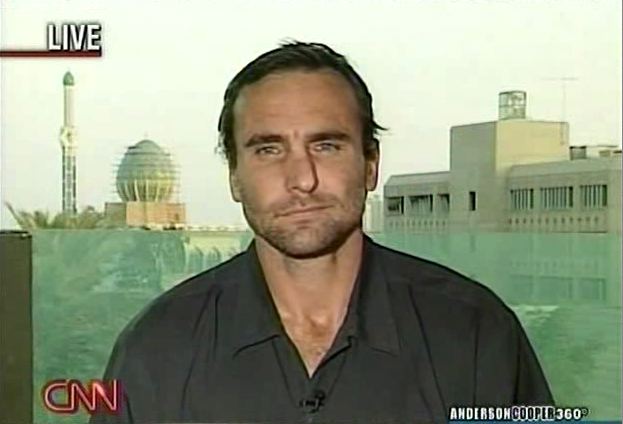AC: "Is this war actually being lost?"

Click photo to play
Length: 4:27
JOHN ROBERTS: About 700 police officers have been pulled out of service because of suspected ties to some of the sectarian violence in Iraq.
With more on that and today's other developments, CNN's Michael Ware joins me now from Baghdad. Michael, how rampant is this problem of death squads infiltrating the police forces and just being allowed to operate with impunity?
MICHAEL WARE, CNN CORRESPONDENT: Well, John, some of these death squads, and we're talking about the Shia death squads particularly here, are institutionalized within the framework of government on the ground here in Baghdad and beyond.
I mean, these are police units in legitimate police uniforms with legitimate identification. They have been going to Sunni neighborhoods, taking people away and the next they're seen is dead on the street.
This has become a problem deep within the government itself. And these anti -- these American raids against the death squads, they have to use some of these police and army forces as partners in these operations. So, as soon as the Iraqis are told, the death squads learn about these things.
And we're also seeing, as CBS reported tonight, even in the hospitals the Sunnis have no safety. It's also -- they're also run by a militia. So these death squads are permeating so many levels of the government -- John.
ROBERTS: What's the perception there in Baghdad, Michael? Does the Nouri al-Maliki, the prime minister, have the political will and the capability to deal with these death squads?
WARE: Well, the American mission here is investing all its eggs in the Maliki basket, so to speak. Maliki is relatively powerless. He was a compromise candidate settled upon by the Shia alliance after they won government. He was seen as relatively harmless and manageable by the larger blocks that actually retain the true guts of power here in Baghdad.
The Americans are trying to prop him up, develop a popular support base among the people through this Battle of Baghdad or Operation Together Forward, the massive operation to reclaim the capital from militias, death squads and insurgents and give the prime minister the credit so that people support him and give him a wedge against these militias which truly hold the power -- John.
ROBERTS: Michael, you spend an awful lot of time there with American forces. I talked to a retired American general today with very close ties to the Pentagon who says that the growing perception there at the Pentagon is that this battle is being lost, not won. Does that perception reflect what you're seeing on the ground there?
WARE: Well, that's a very difficult question. But there's certainly no sign that the U.S. forces are winning this war, either militarily or in the hearts and minds. So the question does raise, is this war actually being lost?
So far, those who have gained most from this war has been al Qaeda -- which the U.S. intelligence agencies themselves say has become strengthened -- and Iran. Iran has been emboldened enormously by this war. And indeed, many elements of this government are much more closely aligned with Tehran than they are with Washington.
So we see two of this administration's sworn enemies benefiting from this war, rather than the U.S. troops. There's simply not enough troops here to do the job that really has to be done -- John.
ROBERTS: Not enough troops, even though there's still 140,000 American troops there and some 300,000 Iraqi troops?
WARE: Well, this is the thing. We're almost reaching the point now where the targets for Iraqi troop numbers that the U.S. military had set to put in place, trained and in the field, has almost been reached. Yet, there still is little if any, headway against the insurgency.
And as you know, in the midst of this holy month of Ramadan offensive, attacks across the board are up. The killings of Americans and Iraqi civilians are at extremely high levels. So just having these troops is proving to be less than enough -- John.
ROBERTS: And a particularly deadly day today, as well.
Michael Ware, in Baghdad, thanks very much.
And a grim reminder of the toll that U.S. service members have paid in Iraq, here's the raw data. The Pentagon says 2,727 U.S. troops have been killed in Iraq. Of that number, 2,174 died from hostile fire; and 20,687 Americans have been injured.
